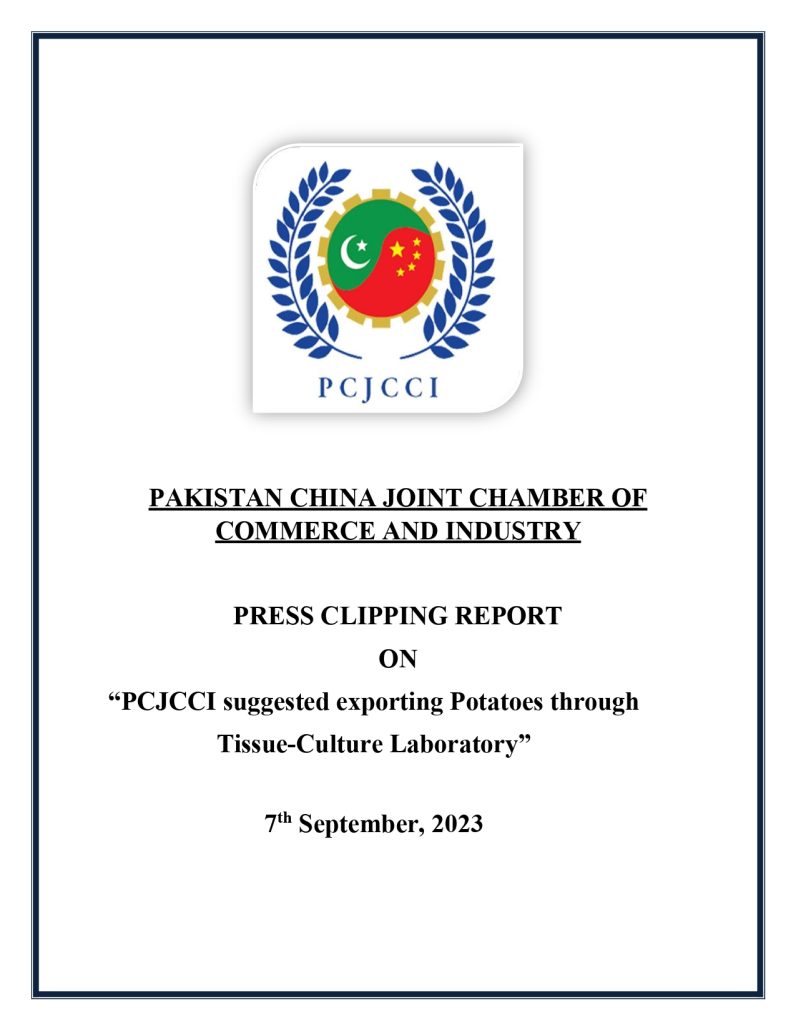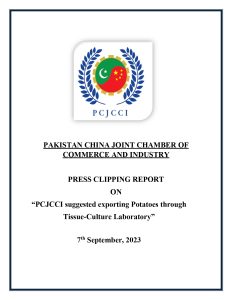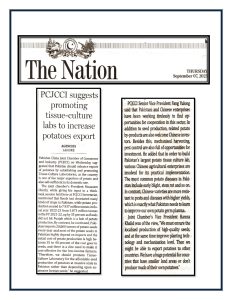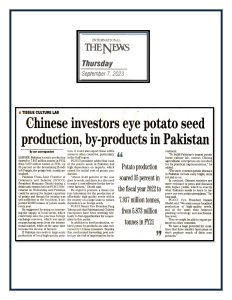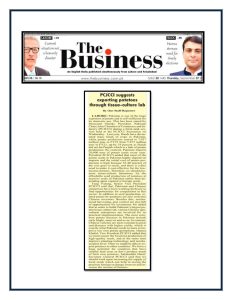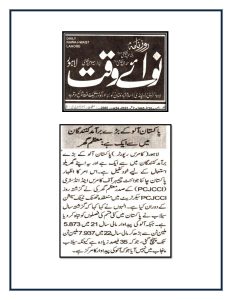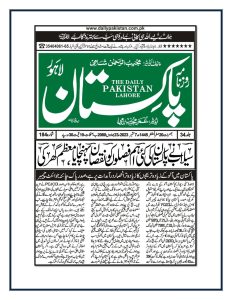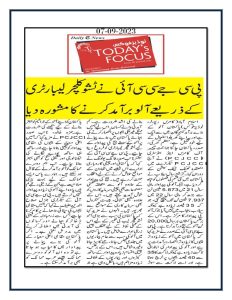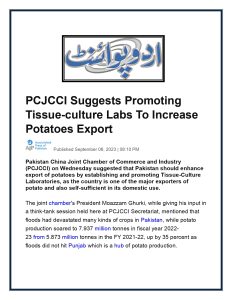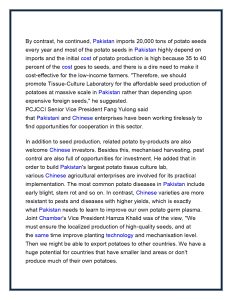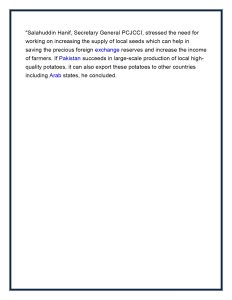PCJCCI suggested exporting Potatoes through Tissue-Culture Laboratory
Pakistan-China Joint Chamber of Commerce and Industry (PCJCCI) on Wednesday afternoon proposed to grow Chinese varieties of potatoes to enhance disease-free production.
PCJCCI leaders – during a think-tank session at the PCJCCI Secretariat – mentioned that Chinese potato varieties were known for their resistance to pests and diseases, making them a valuable resource for Pakistan to enhance its potato germ plasma.
They suggested the establishment and promotion of Tissue-Culture Laboratories, highlighting that Pakistan is a significant potato exporter and self-sufficient in domestic potato consumption.
Moazzam Ghurki, President of the joint chamber, noted that recent floods had caused extensive damage to various crops in Pakistan, but potato production had risen to 7.937 million tonnes in the fiscal year 2022-23, a 35 percent increase from 5.873 million tonnes in the previous fiscal year.
This growth was attributed to the fact that Punjab, a major potato-producing region, was unaffected by the floods.
In contrast, Pakistan imports 20,000 tons of potato seeds annually, leading to a heavy reliance on foreign seeds and high initial production costs, as around 35 to 40 percent of the expenses are allocated to seeds.
Ghurki emphasized the need to make potato seed production cost-effective for small-scale farmers and proposed the promotion of Tissue-Culture Laboratories within Pakistan to produce affordable potato seeds on a large scale, reducing dependency on costly foreign imports.
Fang Yulong, PCJCCI’s Senior Vice President, highlighted that Pakistani and Chinese businesses were actively exploring cooperation opportunities in this sector. Beyond seed production, Chinese investors expressed interest in potato by-products, mechanized harvesting, and pest control initiatives. “They are also collaborating to establish Pakistan’s largest potato tissue culture lab. Chinese potato varieties are known for their resistance to pests and diseases, making them a valuable resource for Pakistan to enhance its potato germ plasma,” he added.
Hamza Khalid, Vice President of the Joint Chamber, stressed the importance of localized high-quality seed production, technological improvements, and mechanization.
He suggested that these efforts could potentially enable Pakistan to export potatoes to other countries, especially those with limited arable land for potato cultivation.
Salahuddin Hanif, Secretary General of PCJCCI, emphasized the significance of increasing the supply of locally produced seeds.
This would not only conserve foreign exchange reserves but also boost farmers’ income, he added.
Hanif concluded that if Pakistan could achieve large-scale production of high-quality potatoes, it could potentially export these potatoes to other countries, including Arab states.
In conclusion, PCJCCI proposed enhancing Pakistan’s potato exports through the establishment of Tissue-Culture Laboratories, reducing dependency on costly foreign seeds, and exploring opportunities for collaboration with Chinese enterprises in various aspects of potato production and processing.

